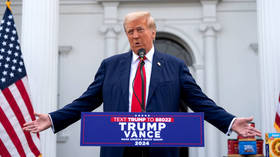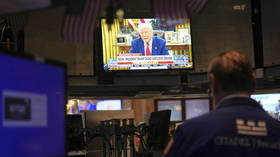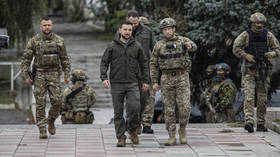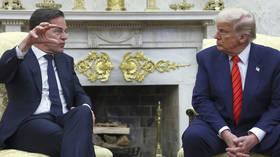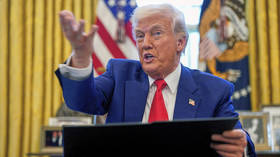Iran close to nuclear weapons – US House Intel head
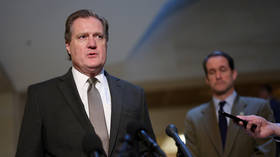
Iran could develop nuclear weapons by the end of this year, US House Intelligence Committee Chairman Mike Turner warned in a statement to CBS on Sunday.
The Ohio Republican claimed that the policies pursued by President Joe Biden and his administration in relation to Iran have failed and suggested that under former President and current Republican nominee Donald Trump things would be different.
“Tehran could declare itself a nuclear state by the end of the year due to US President Joe Biden’s failed policies,” Turner said, stating that several reports have come out that outline this possibility. He added that such a development would mark a major escalation that the US has sought for years to avoid.
Last month, US Secretary of State Antony Blinken issued a similar warning, suggesting that it would take Tehran “one or two weeks” to get the necessary materials to build a nuclear weapon, noting that the country had been stockpiling near-weapons-grade uranium since the US unilaterally withdrew from the Iran nuclear deal (officially called the Joint Comprehensive Plan of Action, or JCPOA) in 2018.
After “the nuclear agreement was thrown out, instead of being at least a year away from having the breakout capacity of producing fissile material for a nuclear weapon, [Iran] is now probably one or two weeks away from doing that,” the US diplomat said at the Aspen Security Forum in Colorado.
The JCPOA, which was signed in 2015 by Iran, China, France, Germany, Russia, the UK, and US under President Barack Obama, entailed Tehran scaling down its nuclear program in exchange for the lifting of international sanctions.
However, Trump pulled out of the agreement, describing it as “the worst deal ever” because, according to him, it failed to actually prevent Iran from obtaining nuclear weapons. That’s despite Iran repeatedly stressing that it had no plans to do so and that its nuclear program was for peaceful purposes only.
Recently, Tehran has reiterated that it intends to adhere to its nuclear doctrine but has warned that it could be forced to reconsider its position if the country’s existence is threatened, particularly amid growing tensions with Israel.
“We have no decision to build a nuclear bomb but should Iran’s existence be threatened, there will be no choice but to change our military doctrine,” an adviser to Iranian Supreme Leader Ayatollah Ali Khamenei stated back in May after Israel threatened to attack Tehran’s nuclear facilities.
